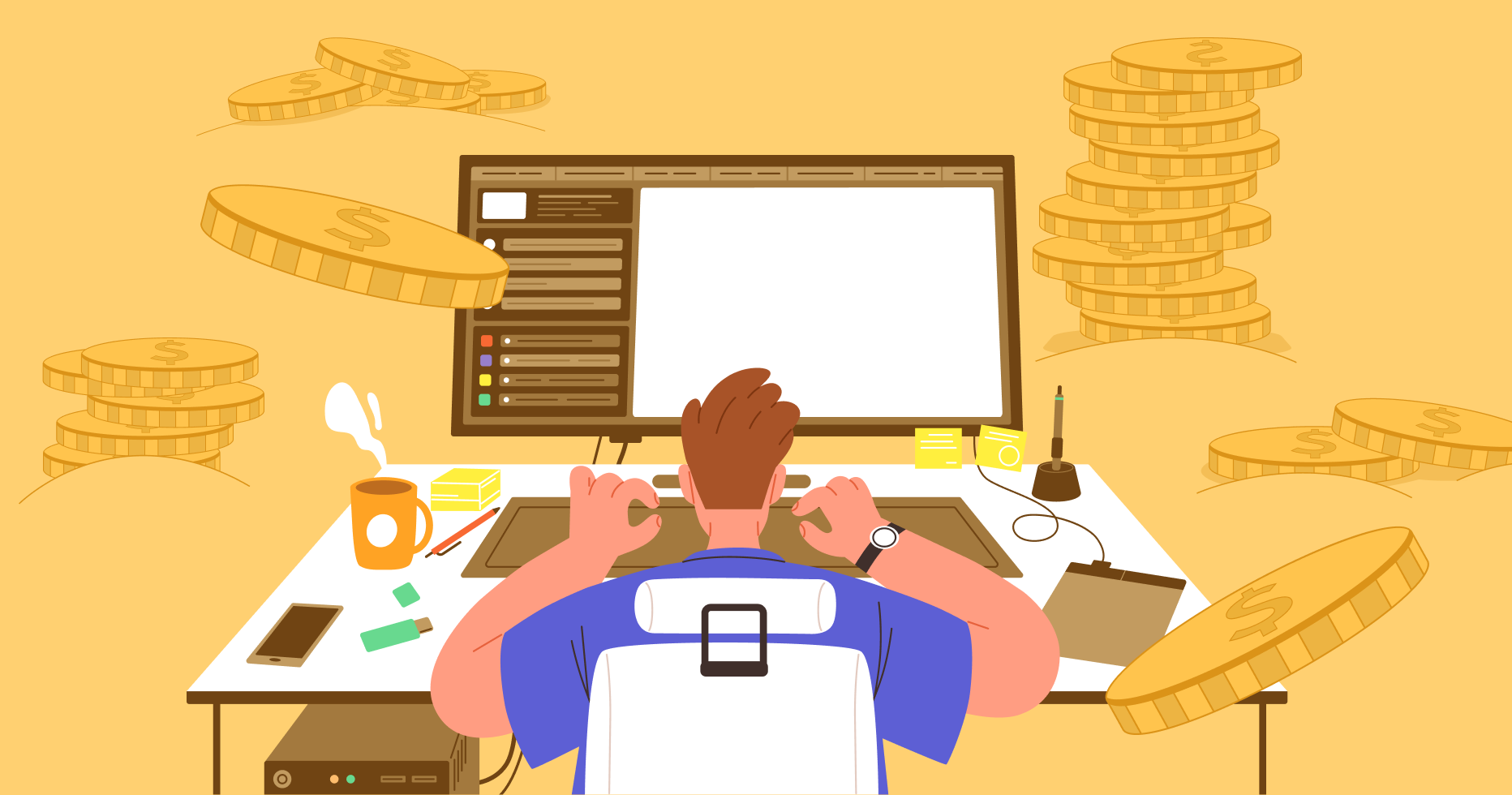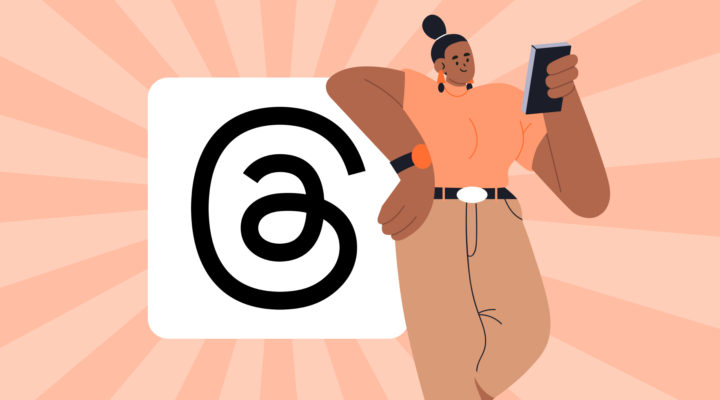Freelancing provides you with freedom over your workload and much-needed flexibility that most full-time jobs do not. You can work from home, coffee shops, co-working spaces, or pretty much any place with a stable Wi-Fi connection.
However, with great flexibility comes great responsibility. Because you’re your own boss, you’ll need to make every decision yourself. From getting clients, managing them, taking care of payments, promoting your brand, multitasking, and more. Every freelancing work decision has to be made by you. Unpredictability is a real hitch that you will have to deal with. Projects get shelved, collaborations fall apart, and contracts get cancelled prematurely in the freelancing world. But, if you’re up for it, freelancing can be an enriching and rewarding process.
Having said that, we know that finding motivation and being productive in this age of constant distractions can be arduous. But we’re here to help. If you’re a freelancer who’s seeking ways to increase your productivity, here are 10 tips to be more productive.
1. Creating a schedule
First things first, when it comes to being productive, creating a schedule is vital. Unlike full-time jobs, freelancing allows you to choose your working hours. However, this can be a curse or a blessing, depending on how you treat this freedom. It’s crucial to select your freelancing work hours so that you can plan the rest of your day accordingly.
Timetables are a tried and tested method for increasing productivity. An average time table should include your wake-up time, mealtime, leisure hours, and working hours (obviously). Freelancing work requires you to be diligent and a well-thought-out schedule will help you with that.
2. To-do lists are a must
Now, this goes without saying, but you cannot work efficiently without a to-do list. However, make sure your list is feasible. In addition, structure your list around daily or weekly goals.
To make a to-do list, you can use the old school method of pen and paper or choose from the plethora of mobile applications available online, such as Trello. Trello lets you create boards and cards for your different projects, upload links, make revisions, and track your progress. An additional thing to keep in mind is honesty. Deep down, you recognise your own potential, don’t you? So, be realistic and set achievable goals. Then, you’ll surely succeed.
3. Structure your work
As a freelancer, you’re constantly juggling between different projects and simultaneously working with multiple organisations. Handling numerous deadlines while delivering high-quality output can become tedious, which is why it is essential to structure your freelancing work. Your clients count on you to deliver on time. So, make sure that you monitor all your due dates and deliverables. The easiest way to do that is by using Google calendar.
Try to assemble folders for specific assignments for your convenience. Also, because you’ll be working on multiple things during each day, try batching similar tasks. This approach will increase your focus and allow you to achieve more in less time. Grouping akin tasks will bring structure to your daily life and, as a result, to your freelancing work.
4. Taking breaks is key
One of the worst things any freelancer can do is overwork themselves. In this world of constant hustling, all of us want to achieve more by persistently pushing ourselves. While that approach might allow us to push forward in the short run, exploiting our physical and mental health wouldn’t work in the long haul.
Contrary to common belief, taking a break wouldn’t hamper your productivity. Instead, taking time to recharge will optimise your productivity and let your creative juices flow more freely. It’s essential to unwind and take meaningful breaks to recharge your energy. To have a laser-sharp focus, try taking a 15-30-minute break every 2 hours. You can also opt for shorter intervals. A common rule is the 25/5-minute split, in which you take a 5-minute break after working for 25 minutes. Going for a walk, having some coffee, or listening to music is a great way to recharge your batteries.
5. Eliminate distractions
We’re all low-key waiting for motivation to come and find us. But the thing with motivation is that it’s highly overrated. Rather than waiting for it to arrive, why not eliminate the root cause of its deferral? Which, in this case, are the distractions that we tend to pamper. We’re constantly distracted by one thing or another, resulting in endless procrastination. Most of us are hooked to our smartphones and social media accounts. We’re all guilty of constantly scrolling through our Instagram and Facebook feeds while working.
The result of this misused time is less productivity in our freelancing work. So, instead of constantly checking your smartphone while working, use it at specific intervals. Leave it on silent, keep it away from your work desk, and only use it during breaks. Switching off notifications helps avoid distractions too.
6. Reward yourself
It’s necessary to pamper and pat yourself on the back every now and then. As a freelancer, you can get caught up in never ending projects and building your brand. But it’s essential to take a minute every day to absorb and reflect on the growth that you’ve achieved. So, treat yourself more often by indulging in your favourite food or an activity of your choice.
For example, every time you build your skills and improve your portfolio, go out to that fancy restaurant you’ve been eyeing or do anything else that makes you genuinely happy. You can use these rewards as incentives to boost your productivity and help keep you happy in the long run.
7. Always put on your work attire
Most remote workers sit in their pyjamas all day long while working out of their beds. While they may already be diligent workers, they can still get a boost from this little productivity hack: work attire.
Putting on work attire in the morning not only clicks an instant switch in our mood, but also helps us psychologically prepare for the day. So, for all you freelancers who like working in your pyjamas, give this a try. Your productivity is bound to improve, bringing a sense of positivity to your freelancing work life.
8. Assess your performance
Some influential questions that you can ask yourself at the end of the day are: “Did I achieve everything I set out to do?” or “Did I perform at my optimum level?” Asking these questions will not only help you assess your performance, but will motivate you for the next day.
Have goals in place depending on your projects. For example, a social media manager should have clear target metrics, such as follows, reach, and engagement, to hit at the end of every month or quarter.
While gauging your performance, try to think of the reasons you performed the way you did and what might have hampered your performance. Take notes and implement them on your next work day. This will surely boost your productivity. Individuals with a reputed freelancer profile use this technique to stay ahead of their competitors.
9. Be clear about your client’s expectations
One of the most colossal setbacks that you can face as a freelancer is misunderstanding what the client wants. By misunderstanding the client’s expectations, all you’ll be doing is wasting your own precious time and that of the client. There may be times when the client finds it hard to communicate or put everything into words. In these scenarios, always make sure to cross-question the client with no holds barred. Even if your query sounds trivial, be sure to clarify.
A simple way to avoid any ambiguity is by having a list of questions prepared before the meeting. You could also make notes while the meeting is going on for later assessment. The client’s vision is of utmost importance. So, to avoid any needless confusion, you should always understand their brief accurately before beginning work on a project.
10. Maintain a dedicated work space
A lot of freelancers work out of their homes. Although working from home is super convenient, it comes with its own set of challenges, such as not having a dedicated workspace. You should have a work desk or other space where your productivity is at its optimum level. To achieve this, it’s vital to build a setting that stimulates creative thinking and ensures focused attention. Different milieus work for different individuals. So, craft a workspace that helps you concentrate. It can be in your room or some other corner of your house.
But make sure that the space you choose is organised, decluttered, and offers privacy. It shouldn’t be a leisure area. You can also personalise your workspace by adding items that enliven you, such as a specific fragrance, indoor plants, or chic stationery.
However, having a co-working space or work cafe can do wonders for your overall productivity. An expansive network of co-working spaces is being offered at reasonable prices. Co-working spaces are a hassle-free, long-term solution for all freelancers.
Conclusion
Now, although focusing only on the completion of projects and retaining clients might seem paramount and work for you in the short run, it isn’t feasible. If you’re in this for the long haul, you will need to work on your all-inclusive growth. This might take some effort initially, but implementing these tips is bound to boost your productivity and help you grow. So, go ahead and optimise your freelancing work by implementing the above tips.




